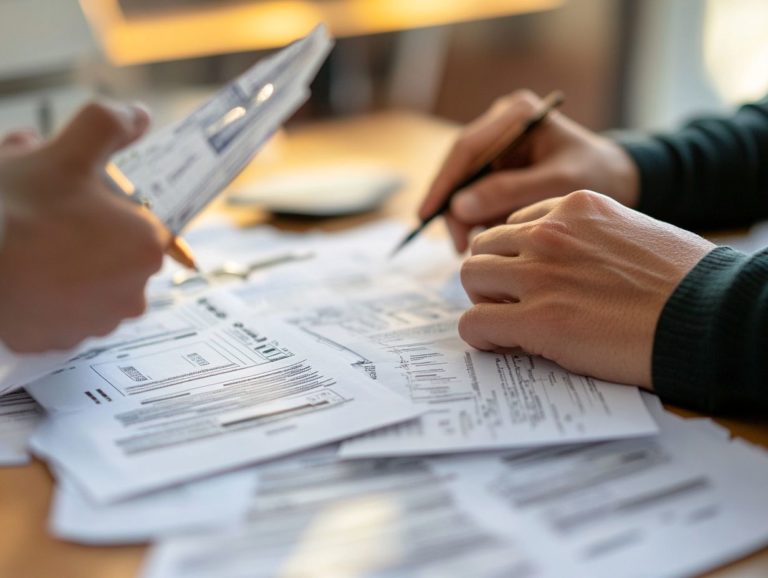What Does It Mean to Be Underinsured?
Underinsurance is a prevalent yet frequently neglected concern that can significantly impact your financial and health security. Many individuals mistakenly assume they have sufficient coverage, only to uncover gaps that leave them exposed during critical times.
This discussion delves into the true meaning of underinsurance, its repercussions, and the elements that contribute to it. It equips you with the knowledge to identify whether you are underinsured and offers actionable steps to bolster your protection.
Grasping these concepts empowers you to make informed decisions about your coverage. This ensures you are adequately prepared for whatever life may throw your way.
Contents
Key Takeaways:
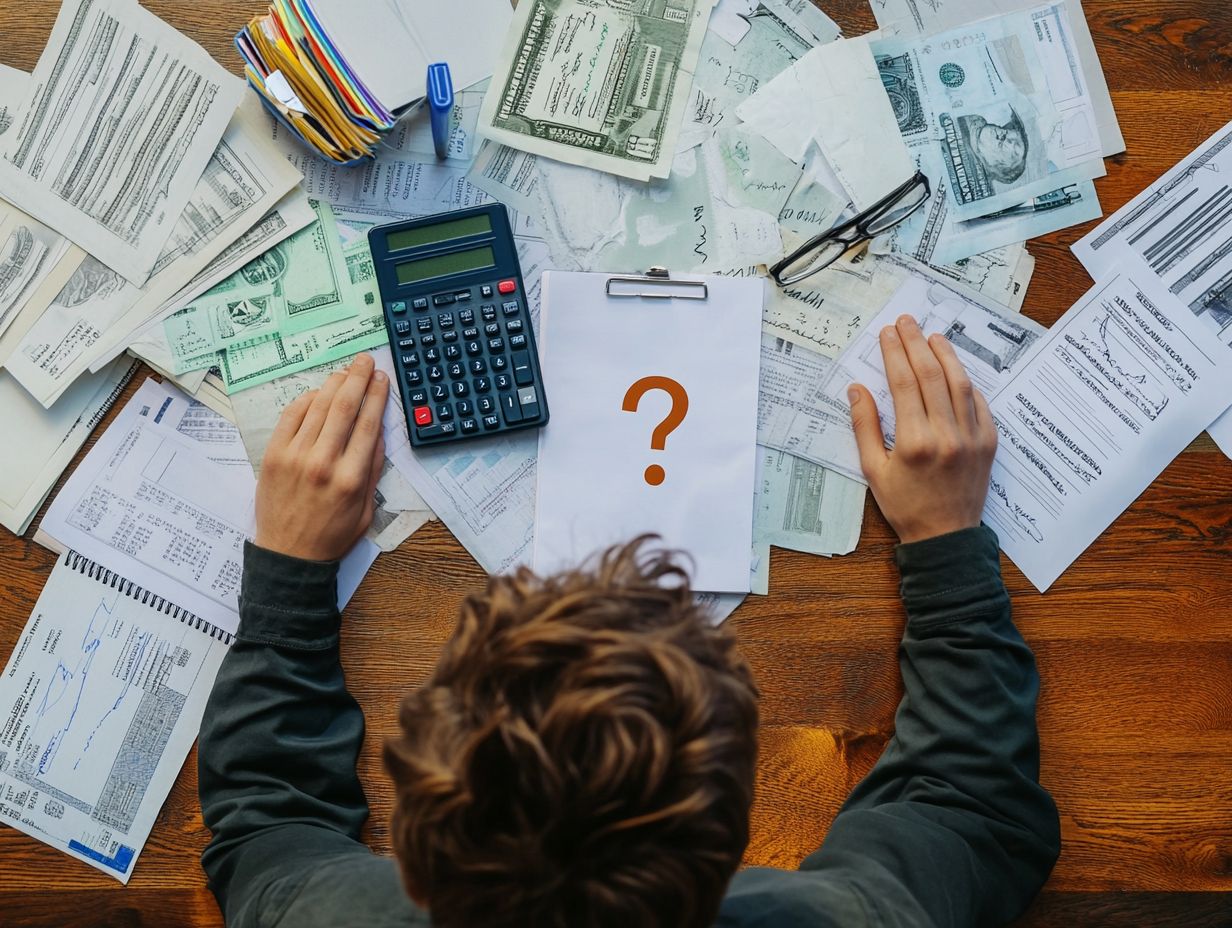
- Protect your finances by ensuring adequate coverage against financial and health risks.
- Understand that underinsurance can lead to dire consequences, such as paying out of pocket for expensive bills and being unable to access necessary healthcare services.
- Acknowledge factors such as low income, high deductibles, and lack of understanding contribute to underinsurance, but take action by regularly assessing coverage gaps and improving protection.
Understanding Underinsurance
Underinsurance describes a scenario where you lack sufficient insurance coverage to meet your financial obligations in the event of an accident. This is particularly true regarding uninsured and underinsured motorist protection. This situation can lead to considerable financial burdens, especially if you face bodily injury or property damage.
You could find yourself grappling with hefty medical expenses and possible legal liabilities that surpass your coverage limits. Understanding underinsurance is crucial for shielding yourself against unexpected incidents like hit-and-run accidents.
It ensures that you re equipped with the right insurance knowledge to skillfully navigate the complexities of the insurance market.
Definition and Explanation
Underinsurance arises when your auto insurance policy fails to offer adequate coverage limits to handle bodily injury or property damage resulting from an accident.
This situation can create significant financial stress if an accident occurs. Consider the variety of auto insurance options available. For example, collision coverage assists in covering repair costs for your vehicle after an accident, while personal injury protection covers medical expenses for injuries sustained by you and your passengers, regardless of fault.
Understanding deductibles is essential; they are the amount you pay out of pocket before your coverage kicks in. If you opt for lower premiums, you may inadvertently find yourself underinsured, as your coverage limits might not meet your needs.
Knowing these details can make all the difference in choosing the right policy before it s too late! You can select policies that strike the right balance between affordability and comprehensive coverage, ultimately providing you with enhanced protection against unexpected events.
Consequences of Being Underinsured
Not having enough insurance can put you at serious financial and health risks. You may find yourself burdened with the responsibility of covering medical bills and property damage out of pocket, particularly in situations involving uninsured motorists or catastrophic accidents.
Financial and Health Implications
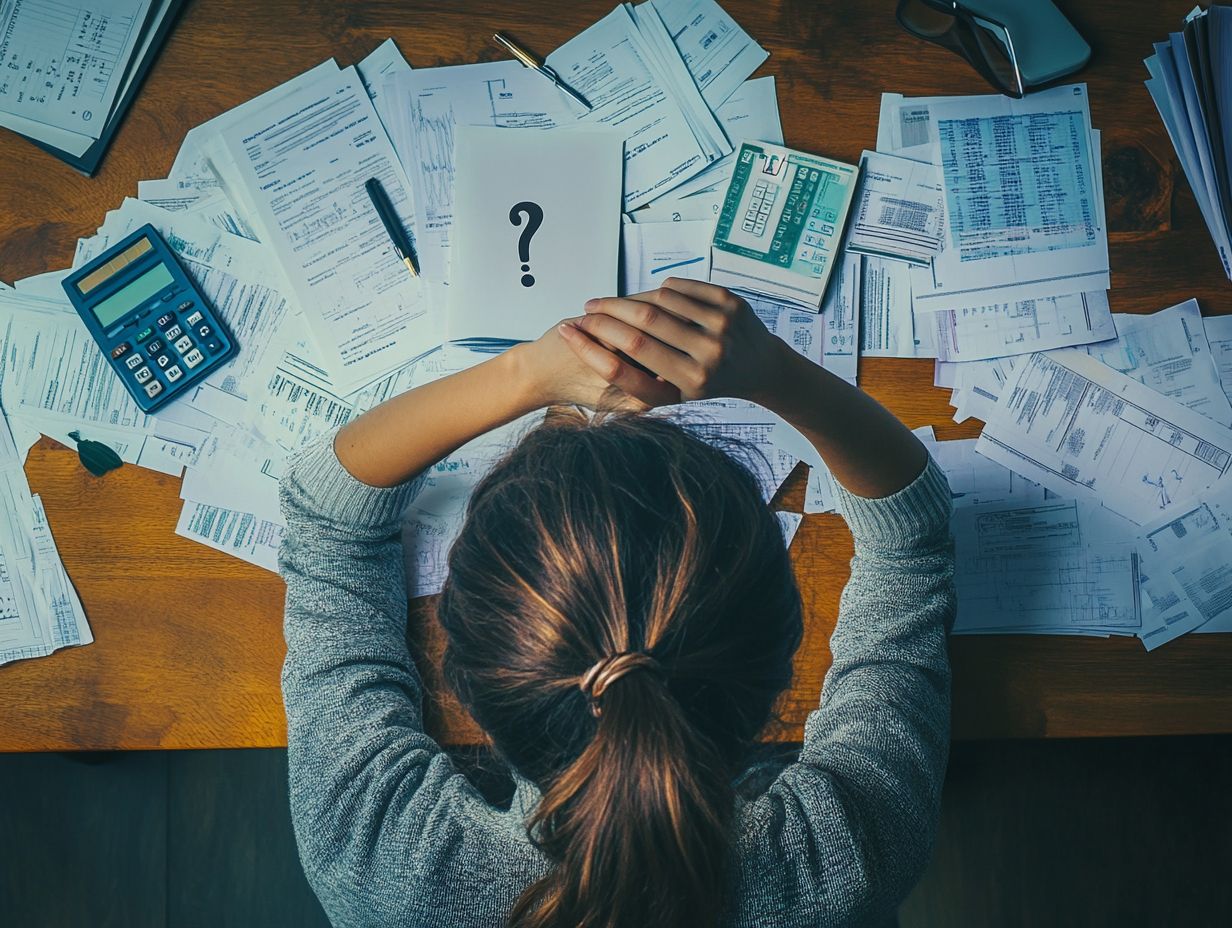
The financial implications of being underinsured can be quite profound. This often leads you into a world of overwhelming medical debt and an inability to recover costs associated with accidents.
This situation can spiral into a cycle of financial instability, where you might struggle to cover basic living expenses or afford necessities due to the weight of medical bills. The stress and anxiety stemming from these circumstances can ultimately push you toward bankruptcy. This scenario can leave lasting scars on your credit and overall financial health.
While health insurance options like the Affordable Care Act offer some relief by broadening coverage for many, they often fall short of addressing the full scope of costs that arise from serious medical conditions. As a result, those who are underinsured frequently navigate a precarious financial landscape, grappling with tough choices and compromised well-being.
Factors that Contribute to Underinsurance
Several factors can lead to underinsurance. A good understanding of auto insurance policies plays a significant role. Misjudging coverage limits and a lack of responsible money management regarding insurance matters can also be pitfalls.
Common Causes and Scenarios
Common causes of underinsurance often stem from choosing lower premiums and misjudging the importance of uninsured motorist coverage. The unpredictable nature of hit-and-run accidents can leave individuals financially vulnerable.
Consider this: you decide to save on monthly costs by opting for minimal collision coverage. Then, you find yourself in a serious accident caused by a driver without insurance. You might feel reassured by your coverage, only to discover substantial out-of-pocket expenses for vehicle repairs and medical bills. If the other driver is at fault and lacks the means to cover the damages, recovering those costs due to inadequate liability protection could be a struggle. This could lead to financial strain something that could have been avoided with the right coverage in place.
How to Determine if You Are Underinsured
To determine if you are underinsured, assess your current auto insurance policy. Review your coverage limits and identify any gaps that could leave you financially vulnerable in case of an accident.
Take charge of your safety on the road with proactive coverage!
Assessing Coverage Gaps
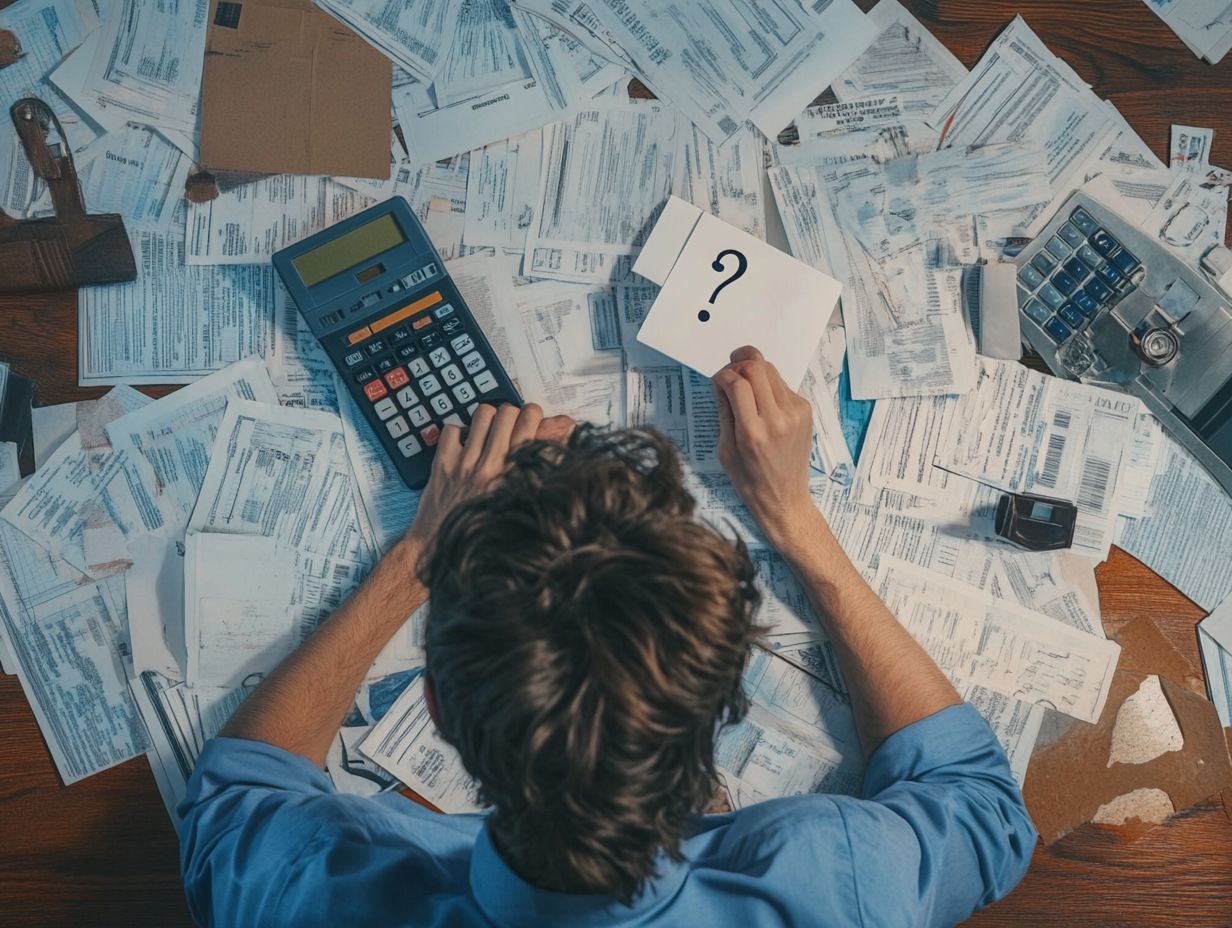
Assessing coverage gaps in your insurance policy is essential to ensure you aren t left vulnerable when an unexpected accident occurs.
To manage your risks effectively, review the policy details thoroughly, paying close attention to key components like collision coverage, which helps pay for damages to your car after an accident, and personal injury protection, which assists with medical expenses. Understanding these elements allows you to identify potential deficiencies in your coverage that could lead to significant financial strains.
By analyzing these specifics, you can make informed decisions about increasing limits or adding supplementary coverage options, providing you with peace of mind and safeguarding your financial well-being in unforeseen circumstances.
Steps to Address Underinsurance
Addressing underinsurance requires proactive measures to enhance your coverage, ensuring you have the protection needed to meet your financial responsibilities in the event of an accident.
By taking these steps, you can confidently navigate potential risks and safeguard your future.
Tips for Improving Coverage and Protection
To enhance your coverage and protect yourself from underinsurance, consider strategies like increasing your coverage limits and opting for uninsured and underinsured motorist protection.
Broadening your coverage can significantly enhance your financial security, protecting you from non-collision-related damages such as theft, vandalism, and natural disasters. Regularly assessing and lowering your deductibles can also provide immediate financial relief when filing claims, allowing you to manage your premiums more effectively.
Stay informed about industry standards and regularly review your insurance policies, identifying any changes in your personal needs or circumstances that may require adjustments for optimal protection. By taking these proactive steps, you can secure insurance that truly meets your individual requirements.
Frequently Asked Questions
What Does It Mean to Be Underinsured?
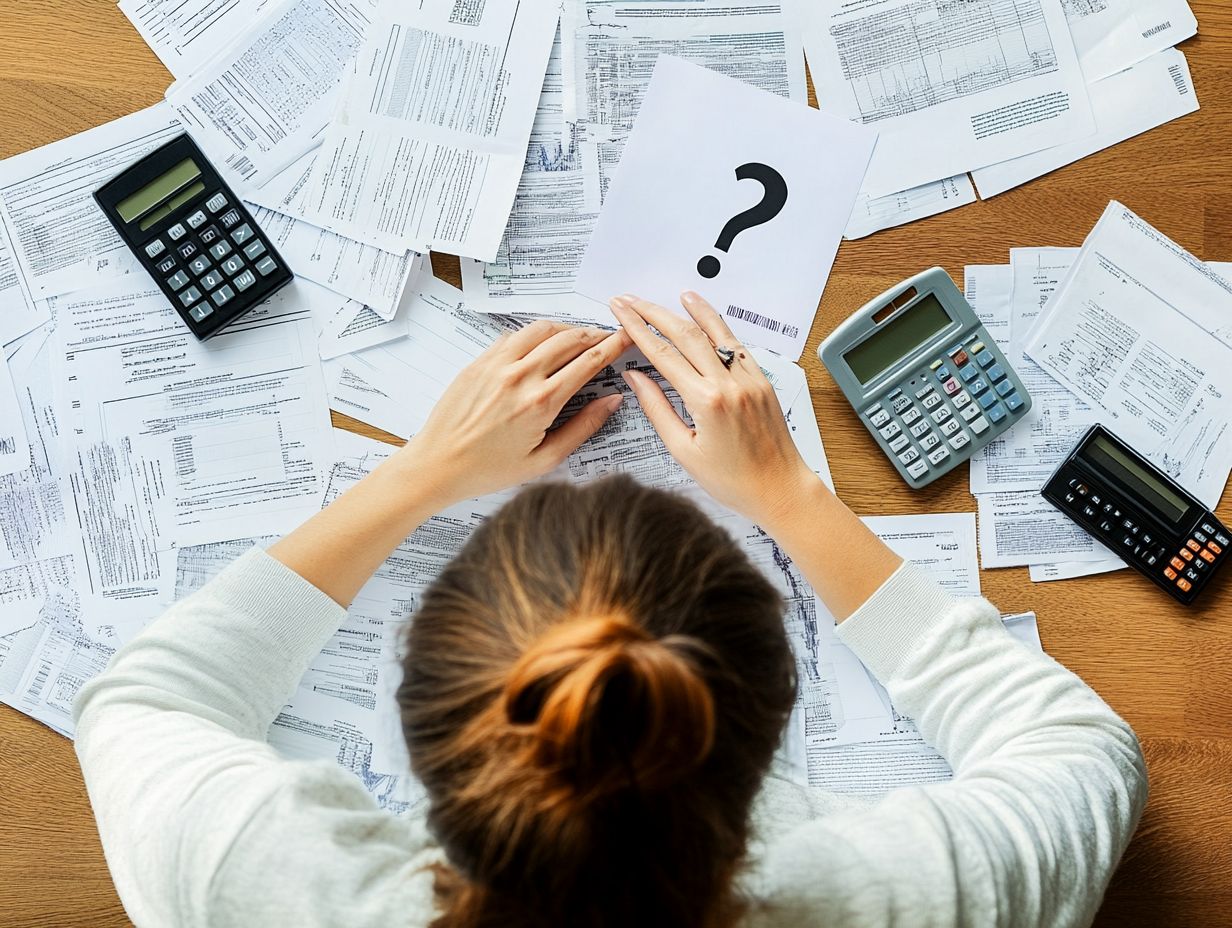
Being underinsured means having insurance coverage that doesn’t provide enough protection for your needs in the event of a claim. If you find yourself in this situation, it’s important to know what to do if you’re underinsured.
What are some examples of being underinsured?
An example of being underinsured is having a health insurance plan with a low coverage limit that does not cover all of your medical expenses.
Don’t wait until it’s too late! Review your insurance policy today!
How can I determine if I am underinsured?
Check your insurance policies and coverage limits. Make sure they provide adequate protection for potential claims.
What are the potential consequences of being underinsured?
Being underinsured can lead to unexpected out-of-pocket expenses. This might result in debt or financial stress.
What steps can I take to avoid being underinsured?
Regularly review and update your insurance policies. Ensure they meet your current needs and risks.
What should I do if I discover I am underinsured?
If you find you are underinsured, increase your coverage limits. Consider purchasing additional policies to better protect yourself and your assets.





